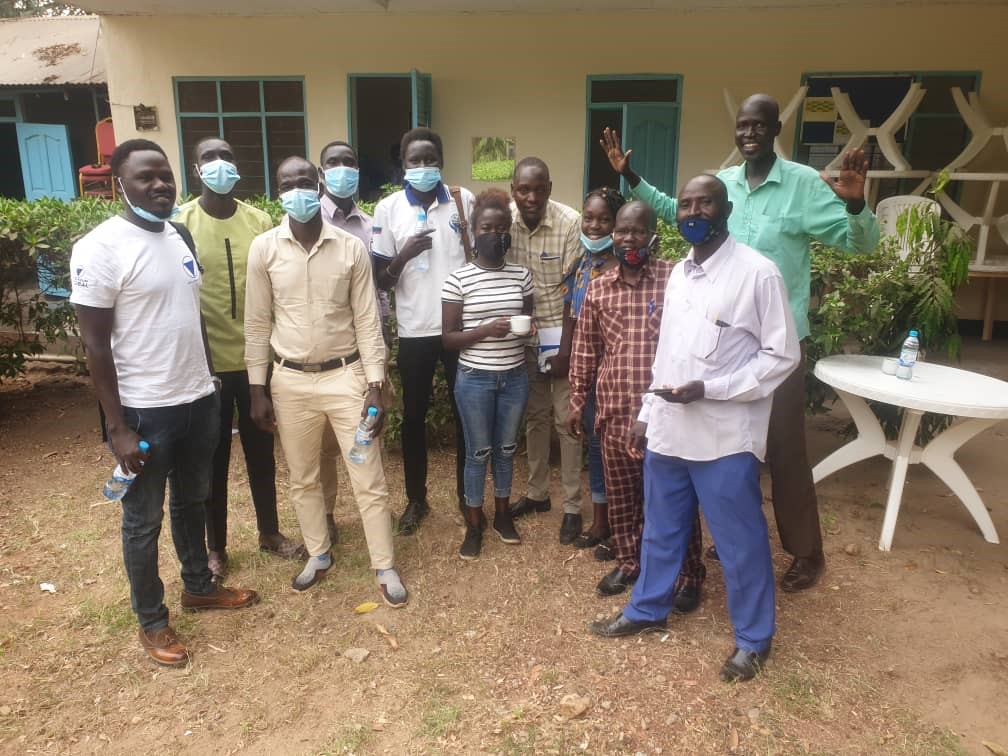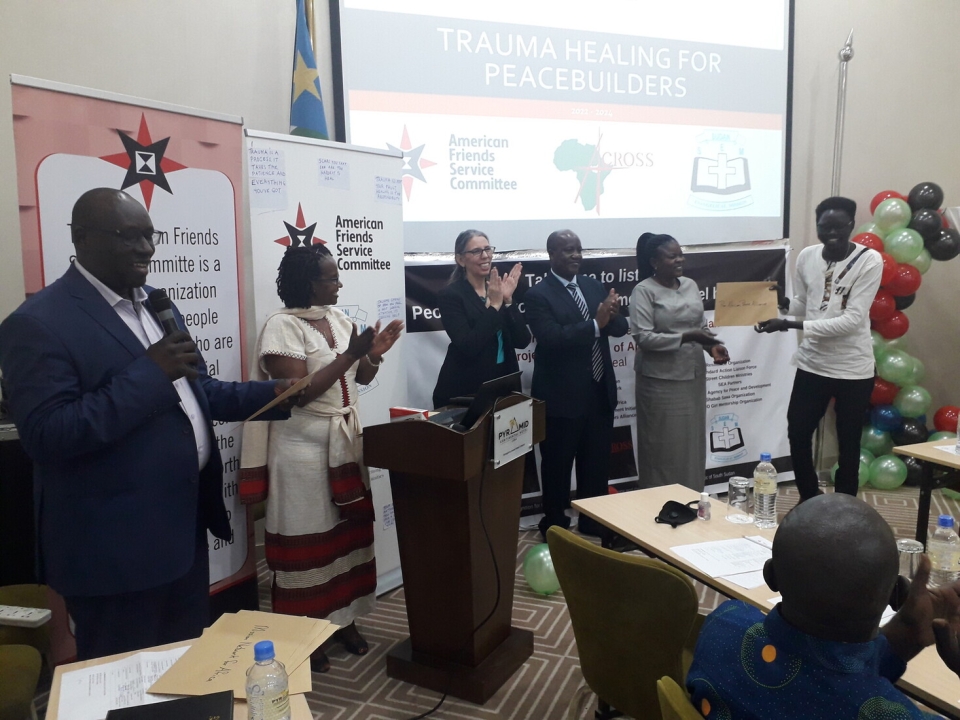
Peacebuilders during a trauma healing training session in South Sudan. AFSC/South Sudan
Alice* is a peacebuilder in the Dinka community of South Sudan. She helps community members heal from the trauma of war, violence, and loss. She also helps resolve conflicts among family members, clans, and tribes.
But like many peacebuilders, Alice struggles with trauma of her own. Her husband was killed in the South Sudan civil war, which killed hundreds of thousands of people and displaced millions more. Now Alice is raising their children on her own, and she faces stigma for being a widow at such a young age. Her personal trauma has made it harder for her to help people. She has felt angry and suspicious of others. And that has limited her ability to carry out her work.
In 2020, AFSC piloted a trauma healing program in South Sudan to help peacebuilders like Alice get the support they need. During that first year, eight local organizations trained 36 peacebuilders on trauma healing. Those trained also learned how to train others. That ripple effect has since reached nearly 600 peacebuilders throughout the country. AFSC also helped the organizations create workplace policies to support trauma healing long-term.

A peacebuilder receives a trauma healing certificate at a recent event celebrating the official launch of the project. Photo: AFSC/South Sudan
Due to the success of the program, AFSC and partners announced the official launch of the full project earlier this year. The project will continue until 2024 in partnership with two local organizations ACROSS and SEM.
As the country representative for AFSC in South Sudan and Somalia, I am grateful for caring supporters like you who help make this critical work possible.
Most people in South Sudan have unresolved trauma, with some reports estimating that nearly 100% of the population has experienced severe traumatic events.
The humanitarian crisis in South Sudan adds to the complexity of the problem. Most South Sudanese people cannot get the resources they need to heal. And many local people hired by organizations providing humanitarian assistance are likely dealing with untreated trauma of their own.
Our trauma healing program is helping to change that. When Alice attended her first workshop, she was unfamiliar with concepts like primary and secondary trauma. The training helped her share her story and face her pain and grief. She started counseling. And although she has only begun her journey, she says she already feels so much relief. Now she can listen to others’ experiences without applying the lens of her own wounds. That makes it easier for her to help people.
Other workshop participants have shared similar experiences. One person told us that before trauma healing, their peacebuilding work felt like “flying with one wheel.” Now they feel like they are going to fly far, flying on two wheels.
Many of us understand how hard it can be to help others when we are struggling with pain ourselves. Today more peacebuilders are receiving the support they need—and the benefits extend to many others, contributing to peace and well-being for all.
Thank you for supporting our efforts.